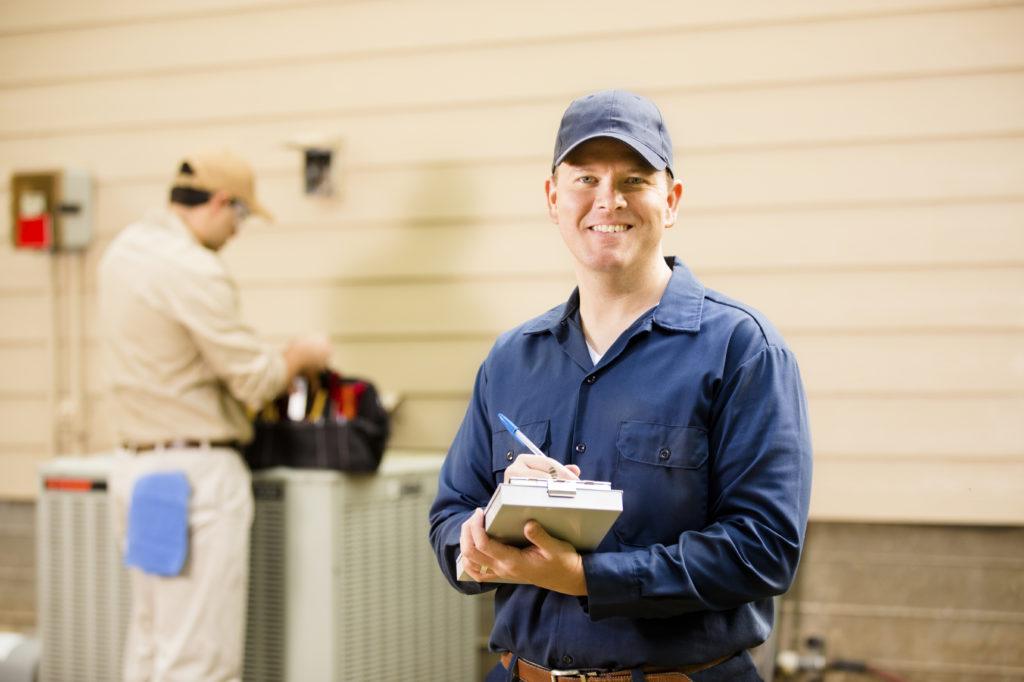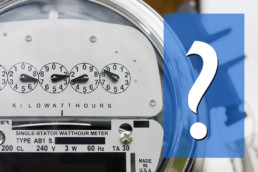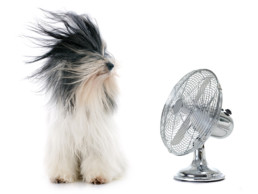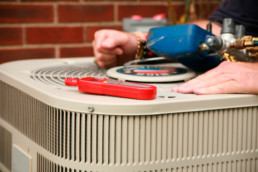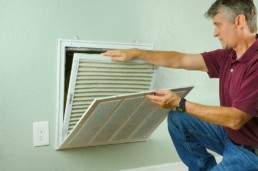Putting Off AC Maintenance Will Cost More In The Long Run
Upgrading your HVAC unit can be a significant expense for your family’s budget. For this reason, you may be putting off purchasing a new HVAC system for as long as possible.
The old adage ‘If it is not broke, do not fix it’ may apply to many situations. However, in the case of HVAC systems, you should replace your old system before it breaks down.
According to the experts at Energy Star, your air conditioner or heat pump unit should be replaced every 10 years. The reason is technological advances make newer HVAC units more efficient than ever. Efficient units can save homeowners hundreds of dollars in utility costs each year.
By using an older HVAC system to heat and cool your home, you are literally blowing your money out of the window. You may be saving money on the purchase price of a new unit, but each month you are spending more money on utility costs. Older HVAC systems are inefficient and wasteful.
HVAC units are only as good as their efficiency as they perform their functions. Each unit is given an efficiency rating by Energy Star known as SEER. For example, units that were installed prior to 2005 have a SEER rating of less than 10.
To put these numbers into perspective, a SEER-9 system that is upgraded to a SEER-13 system can save your family 38 percent in utility costs per year. That is a significant saving.
In 2005, the Department of Energy mandated that all HVAC units have a SEER number that is no less than 13. This legislation by the federal government is an effort to improve energy efficiency in households throughout the United States.
Understanding SEER
SEER stands for Seasonal Energy Efficiency Rating. This is a metric system that was devised to determine the efficiency of an HVAC unit. If a SEER number is high, then it is determined to have a greater level of efficiency. You can purchase an HVAC unit as high as SEER-23.
A simple formula is used to determine the SEER number of an HVAC unit. The calculation that determines the efficiency of your HVAC unit is the number of BTUs divided by the number watts in the system.
The SEER numbers represent the potential efficiency of an HVAC unit. They are not exact measurements that will determine how the HVAC unit will perform in your home.
Factors such as the climate of your geographical area, the size of your home and the quality of your air ducts can determine the actual SEER performance of your unit. At any rate of performance, it will not be less than SEER-13.
Purchasing a New Unit
Before you go to your local ‘big box’ hardware store to purchase a unit with the highest SEER number possible, there are factors that should be considered.
- HVAC units should be purchased according to the size that is right for your home.
- High SEER numbers may not be appropriate for your heating and cooling needs.
- HVAC efficiency can be affected if it is improperly installed.
- Regular maintenance affects your actual SEER number.
Installing Your New HVAC Unit
You might be tempted to install the unit yourself or get it installed by a family friend who performs unlicensed HVAC work. Resist the urge to do so.
Since your HVAC's SEER number and efficiency will be affected by improper installation, you should hire an HVAC company using the following guidelines. All HVAC technicians who install high-efficiency equipment should be certified and experienced.
Experienced HVAC technicians will be able to examine your home and current HVAC system to help you determine a SEER system that is appropriate for your circumstances. If you purchase a system that is not right for your home, you will lose efficiency regardless of the SEER number.
HVAC Efficiency
Although SEER numbers play an important role in your HVAC system's efficiency, a higher number does not mean the unit is better. Our technicians at Mahle Cool Air and Heating will help you find the best unit that suits your home and budget. Call or Text us today for more details (941) 203-7955 and don't forget to check out our specials, financing, and rent-to-own air conditioning options.
Does a Better SEER Rating Mean a Better Air Conditioner?
Upgrading your HVAC unit can be a significant expense for your family’s budget. For this reason, you may be putting off purchasing a new HVAC system for as long as possible.
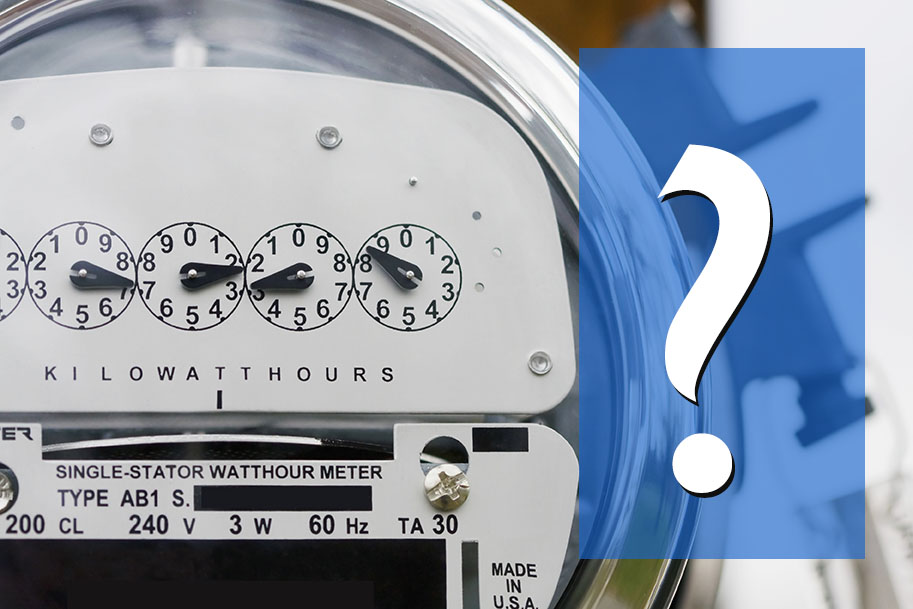
The old adage ‘If it is not broke, do not fix it’ may apply to many situations. However, in the case of HVAC systems, you should replace your old system before it breaks down.
According to the experts at Energy Star, your air conditioner or heat pump unit should be replaced every 10 years. The reason is technological advances make newer AC units more efficient than ever. Efficient units can save homeowners hundreds of dollars in utility costs each year.
By using an older system to cool your home, you are literally blowing your money out of the window. You may be saving money on the purchase price of a new unit, but each month you are spending more money on utility costs. Older heat pumps and cooling systems are inefficient and wasteful.
Each heating and cooling model form every manufacturer is given an efficiency rating by Energy Star known as SEER. For example, units that were installed prior to 2005 have a SEER rating of less than 10.
To put these numbers into perspective, a SEER-9 system that is upgraded to a SEER-13 system can save your family 38 percent in utility costs per year. That is a significant savings.
In 2005, the Department of Energy mandated that all heating and cooling equipment have a SEER number that is no less than 13. This legislation by the federal government is an effort to improve energy efficiency in households throughout the United States.
Understanding SEER
SEER stands for Seasonal Energy Efficiency Rating. This is a metric system that was devised to determine the efficiency of an HVAC unit. If a SEER number is high, then it is determined to have a greater level of efficiency. SEER ratings go as high as SEER-23.
A simple formula is used to determine the SEER number of an HVAC unit. The calculation that determines the efficiency of your HVAC unit is the number of BTUs divided by the number watts in the system.
The SEER numbers represent the potential efficiency of an HVAC unit. They are not exact measurements that will determine how the air conditioner or heat pump will perform in your home.
Factors such as the climate of your geographical area, the size of your home and the quality of your air ducts can determine the actual SEER performance of your unit. At any rate of performance, it will not be less than SEER-13.
Purchasing a New Air Conditioner or Heat Pump
Before you go to your local ‘big box’ hardware store to purchase a unit with the highest SEER number possible, there are factors that should be considered.
- HVAC units should be purchased according to the size that is right for your home.
- High SEER numbers may not be appropriate for your heating and cooling needs.
- HVAC efficiency can be affected if it is improperly installed.
- Regular maintenance affects your actual SEER number.
Installing Your New HVAC Unit
You might be tempted to install the unit yourself or get it installed by a family friend who performs unlicensed HVAC work. Resist the urge to do so.
Since your SEER number and efficiency will be affected by improper installation, you should hire a company using the following guidelines. All HVAC technicians who install high-efficiency equipment should be certified and experienced.
Experienced technicians will be able to examine your home and current HVAC system to help you determine a SEER system that is appropriate for your circumstances. If you purchase a system that is not right for your home, you will lose efficiency regardless of the SEER number.
HVAC Efficiency
Although SEER numbers play an important role in your HVAC system's efficiency, a higher number does not mean the unit is better. Our technicians at Mahle Cool Air and Heating will help you find the best unit that suits your home and budget. Call or Text us today for more details (941) 203-7955 and don't forget to check out our specials, financing, and rent-to-own air conditioning options. Stay Cool with Mahle!
Air Conditioner Technology Has Been Improving And Home Owners Benefit
Many people think of air conditioners are ugly, boxy units, rattling in their frames as they drip condensation, or else as an environmentally unfriendly way to cool down homes and businesses. But air conditioning technology has been radically improving in the past few years, and many of our customers are surprised to learn by some of the latest advances in cooling systems.

Air Purifiers
Modern air conditioning systems do a lot more than just cool homes and offices, they also now purify the air as it circulates. Depending on the model and system you use, advanced filters can remove dust particles, strip allergens, and block noxious pollutants and fumes from contaminating your home or office.
Whole-House Filters - An efficient and economical way to purify the air in your home is to use a whole-house filter. If you're using a centralized A/C forced air system, the whole-house filter will be installed by a qualified technician inside the ductwork. Although it'll be out of sight, the filter will be capturing the return air and trapping particles, pollutants, and dust, cleaning the air you breathe.
Flat Filter - Every forced-air centralized system already uses a filter, usually thin rectangular framed units that rely on fiberglass to remove particles from the air. New designs in filter technologies allow flat filters to be extremely effective at removing particulates from the air, but only if you regularly change them on a monthly basis.
Pleated Filters - Similar to flat filters, the wavy or accordion design of a pleated filter are a bit more expensive, but take advantage of physics to add more filter surface area into the same size. Advanced electrostatically charged filters are perfect for stripping allergens from the air, particularly pet dander and pollen.
Extended Media Filters - Far larger than standard flat or pleated filters, extended media filters are about 8 inches thick. These advanced filter systems have to be installed by a professional, but once placed inside your ductwork they provide an outstanding way to screen dust, allergens, and particulates from the air.
Electronic Filters - Known by professionals as electrostatic precipitators, electronic filters are powered devices that add a magnetic charge to the filter. By constantly ionizing the surface of the filter, electric filters strip even tiny particles like smoke or dust motes from the air. Although electric filters are a bit more expensive and require professional installation, they never need replacing.
UV Filters - Ultraviolet light, a natural component of sunlight, is one of the world's best germicides. Usually installed in conjunction with an electronic filter, UV filters are used in hospitals and medical facilities to safely and silently sterilize the air from bacteria, viruses, and other airborne threats.
Energy Efficiency
Many homes and offices are cooled by air-conditioning units that are 20 years old or older. New breakthroughs in condenser and compression technology mean that today's advanced air conditioning units are about 250% more efficient. Using less electricity to cool your home not only saves you money but also is a great way to reduce your overall impact on the environment.
Air conditioners are rated by their SEER (Seasonal Energy Efficiency Ratio) level, which refers to how efficiently they operate. The higher the SEER number, the more efficient the system. By law, the minimum SEER level for a new air conditioning unit must be 10, but recent changes in federal regulations will mandate that all systems installed starting in 2016 must be a minimum of 13. When choosing a new air conditioning system, always check the SEER level and choose one that has a minimum SEER rating of 13.
Environmentally Friendly
Originally, air conditioning units relied on CFCs, dangerous compounds that are now banned in the United States and most countries around the world due to their devastation of the ozone layer. New coolant fluids were developed, but many of them still contained chlorine and other toxic chemicals.
Today, advanced air conditioners now take advantage of R410A, a chlorine-free coolant fluid that does not cause damage to the ozone layer.
Whisper Quiet
Whereas once air conditioners were rattling, noisy contraptions, breakthroughs in compressor technology and fan design mean that even the largest units are virtually whispering quietly. Noise output is measured in decibels, and many of today's most advanced models operate at an astoundingly quiet 68 decibels, roughly equivalent to listening to a conversation in a restaurant or office. The new line of air conditioners and heat pumps from Bryant is extremely quiet, energy efficient contact Mahle Cool Air today for more information and pricing options. Call or Text us today for more details (941) 203-7955 and don't forget to check out our specials, financing, and rent-to-own air conditioning options. Stay Cool with Mahle!
Fall Maintenance Tips for Central Air Conditioners in FL
As the cooler air approaches, many homeowners feel a little overwhelmed with everything there is to do to prepare for the change. The one thing you can relax about, though, is your central air conditioner. These do need fall maintenance performed, but the fact is that it is not a difficult task to accomplish. However, ignoring the needs of your AC could leave you stranded when the hot weather comes back. By taking care of it now, you can make sure you and your family will stay cool next summer.
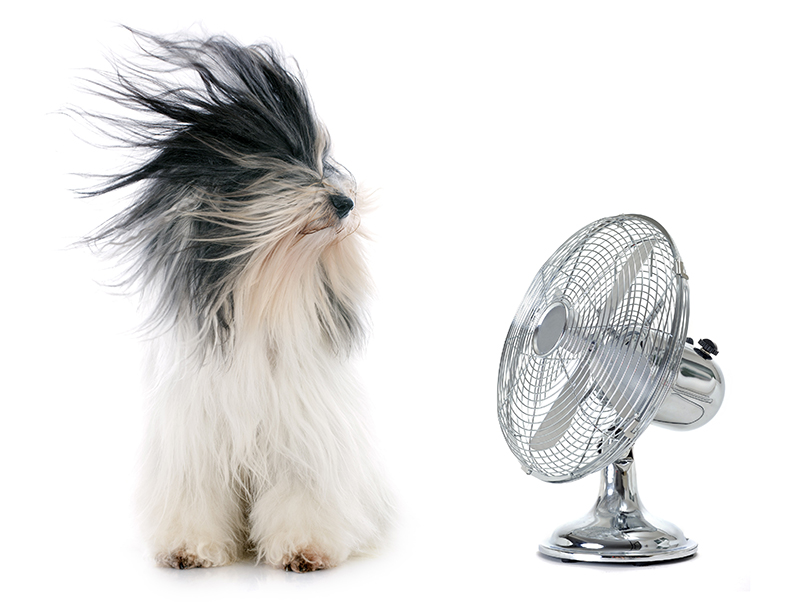
First and foremost, if you have a central air conditioner, you will need to call in a professional to perform an inspection on it. This routine maintenance will include a cleaning. While you may be able to change a filter or clean them when needed, many of the parts that need to be inspected and cleaned are actually inside the sealed unit. The professional, who has received the proper training and has the proper tools, will be able to get inside the unit to inspect and clean it.
A professional inspection of your central air conditioner will include a thorough cleaning of the evaporator coil which is located in the part of the unit located inside your home. This is the part that actually cools the air and, if it is clogged with dust and dirt, you may notice that your unit has restricted air flow. In other words, it is not putting out as much cool air as it normally does.
They will also inspect the condenser unit located outside your home. A problem with the condenser will greatly affect the temperatures in your home. Many issues are caused by outside debris getting inside the unit or a low refrigerant level. As this unit is complex and sealed, the professional should be the one to clean it and perform any routine maintenance. Part of their inspection will also include a cleaning of the fan located inside this outside unit.
If you were to simply shut off your central air conditioning unit this fall and turn it back on in the spring, you may be lucky and nothing would be amiss. Unfortunately, this is not often the case. A lot of dirt and debris can get trapped inside air conditioning units while they are in use and, if left this way, it will cause damage when they first start back up. Even if you do not notice anything immediately, over time, you will see symptoms, including reduced air flow.
A common problem among busy homeowners is that they forget to call to have maintenance performed on their system. One solution to this problem is the air conditioning maintenance plan. The plan includes a thorough inspection and cleaning of your central air conditioning unit, and it affords you the luxury of receiving priority when you call in an emergency. If you do find that your system needs servicing, you will receive a discount for having purchased a maintenance plan.
With the colder season arriving soon in Florida, the last thing you want to do is forget about your air conditioner as you will need it as soon as the weather changes again. In fact, living in Florida offers you that chance that you still may need to have your central air conditioning on in the winter. By performing routine maintenance on it this fall, you can be certain that it will be ready to go whenever you need it. Furthermore, by keeping your central air conditioner in good working order, you can save money as it will be more efficient to operate. Call or Text us today for more details (941) 203-7955 and don't forget to check out our specials on a central air conditioner and heating maintenance. Stay Cool with Mahle!
Energy Efficient Heat Pumps Save Money All Year
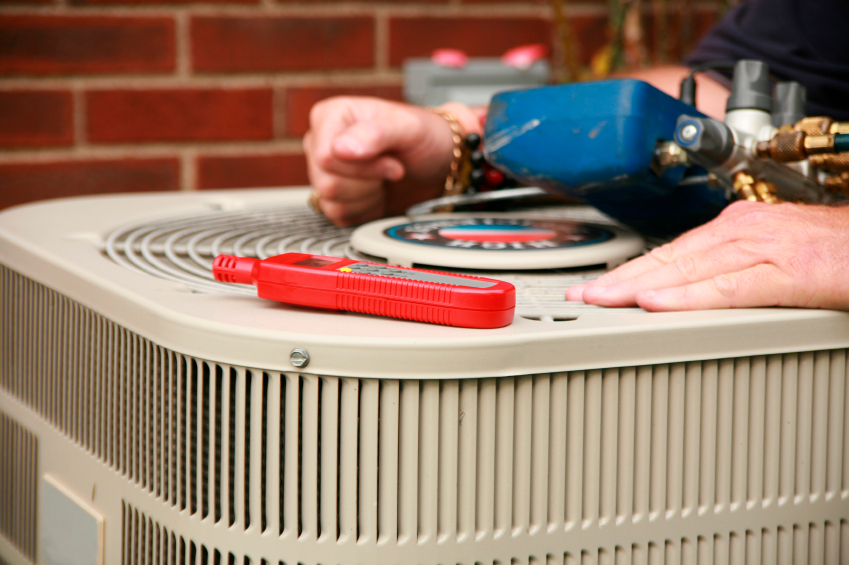
Save Money
One of the many reasons that more people are opting to use heat pumps is because they can help them save a lot of money. Heat pumps do not use as much energy as a standard HVAC system. Because they do not use as much energy, they can help cut the cost of your energy bills.
Keep in mind that you can use heat pumps during the summer and winter months. During the winter months, the heat pump will extract the heat from outside and transfer it inside. This process will reverse during the warm months. It will remove the heat from your home and then transfer it outdoors.
Therefore, you will be able to save money during the entire year if you have a heat pump. In fact, many people who have heat pumps do not use their air conditioner or heater.
Very Long Lifespan
In order to ensure that your heat pump lasts a long time, you will need to make sure that you take good care of your heat pump. You will be able to get a steady source of heat for the years to come. Heat pumps that are well-cared for can last up to 50 years. Keep in mind that a heat pump requires less maintenance than your standard HVAC system.
Safe
Heat pumps are very safe. In fact, they are safer to use than many other heating systems. A heat pump can also protect you from carbon monoxide. Carbon monoxide is a deadly by-product of burning fuel.
Convenient
It is very easy and convenient to use a heat pump. You can decrease or increase the temperature with just a push of a button. A heat pump can also cool or heat up your home in just a few minutes. Studies have shown that people are most comfortable in a room with a temperature that ranges from 68 to 72 degrees Fahrenheit. The heat pump will be able to maintain the same temperature for as long as you need it to.
You will also be able to leave the heat pump on all day and not worry about having to spend a fortune on your energy bill. Additionally, you will be able to come home to a comfortable place.
Helps Keep The Air Clean
Not only can a heat pump keep your home comfortable, but it can also keep the air clean. It helps remove mildew and dust. Keep in mind that exposure to dust and mildew can exacerbate allergies and other medical conditions. A heat pump can also act a dehumidifier, which can help keep your home dry. Call or Text us today for more details (941) 203-7955 and don't forget to check out our specials, financing, and rent-to-own air conditioning options. Stay Cool with Mahle!
Extend The Life Of Your Air Conditioner With Regular Service
Regular maintenance is an essential part of the HVAC system in your home, and your family cannot remain comfortable in the summer without a working air conditioner. The air conditioner in your house is a complicated piece of equipment that can only be serviced by a certified technician. This article explains how our business provides the finest customer service, and you will see the personal stake we have in your satisfaction.
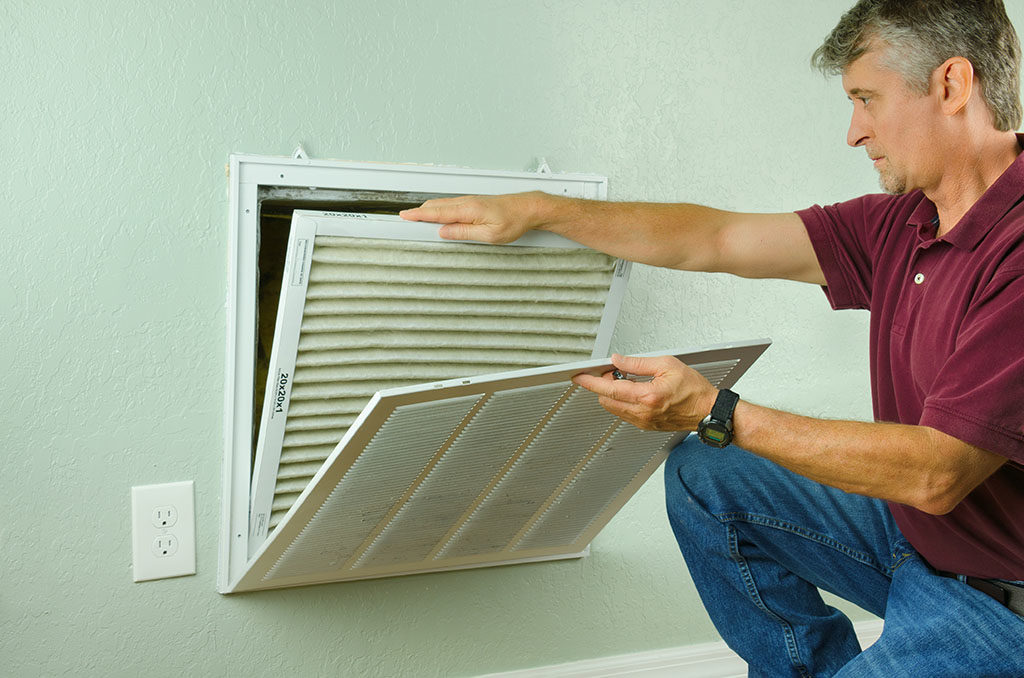
#1: When Was Your AC Last Inspected?
The air conditioner in your home must be inspected at least once a year. Quarterly inspections are preferable, and a licensed technician must have a look at your system. Our service appointments start with a full inspection of each unit. The front panel on the unit is removed, and every inner part of the AC unit is checked for problems. There are several small parts inside your air conditioner that can be repaired on the spot, and we send each technician with those parts for quick service.
Larger problems that are discovered in your air conditioner must be repaired immediately, and our technicians recommend repairs during your appointment. You may schedule a follow-up appointment at any time, and we return to your home when the time is right. You will be spared more expensive repairs in the future, and we will update you on the status of your unit during every visit.
#2: When Should Your Inspections Occur?
We recommend you schedule air conditioner maintenance at the beginning of the spring. You must have the unit looked at before you run the air every day, and we will check on your unit in the middle of winter. Large AC units that are left to sit for long periods of time tend to break down, and we can help you avoid problems with the unit when the temperatures rise outside.
#3: How Long Will Your Air Conditioner Last?
A proper air conditioning unit can last for decades with proper maintenance, but we must come to your often to ensure the unit is working. Allowing the AC to run for years at a time without a service will cut into the life of your unit, and we will note the deterioration of your system during our visits. Our technicians can estimate how long your AC unit will last, and we do not recommend replacement unless your system is far beyond repair.
#4: Our Commitment To Customer Service
Our family-owned business is committed to customer service, and we want you o be satisfied after every service visit. Let us know if you have trouble during your appointments, and we will remedy the problem as quickly as possible. Our service appointments help you save money on maintenance in the future, and we only repair what has gone wrong in your system. We never attempt to sell you services you do not need, and we offer several options for each repair. You choose the repair option that works best for you, and we keep our maintenance appointments faithfully.
Is Duct Cleaning a Waste of Money?
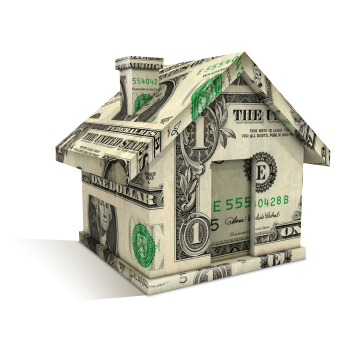 So many people want to know if duct cleaning is a waste of money. Commercial cleaning firms, health studies and scientific journals conclude that the heating, ventilating, and air-conditioning system in a home and building is probably a good idea. Duct cleaning usually involves a complete cleaning of the HVAC’s air handler, coils, grilles, housings, fans and motors. Cleaning air handling units, heating and cooling coils, and air handling units can improve running efficiency.
So many people want to know if duct cleaning is a waste of money. Commercial cleaning firms, health studies and scientific journals conclude that the heating, ventilating, and air-conditioning system in a home and building is probably a good idea. Duct cleaning usually involves a complete cleaning of the HVAC’s air handler, coils, grilles, housings, fans and motors. Cleaning air handling units, heating and cooling coils, and air handling units can improve running efficiency.
Reports by the National Institutes of Health say there is not enough proof to determine if duct cleaning actually improves inner air quality (IAQ) or building occupant health. The following information may help you to decide if your home will benefit from HVAC duct cleaning.
Professional Duct Cleaning
Professional duct cleaners use brushes, vacuums and specially-designed blowers to clean the return, supply, and intact ducts throughout the home. Duct cleaning should be thorough, and should include a cleaning of the coils, air handler, housings, registers, motors, grilles and fans of the system. Although the jury is still out about whether duct cleaning improves air quality and helps people with respiratory allergies and illness, some states make HVAC duct cleaning a routine part of public buildings.
If duct cleaning isn’t proven to be necessary, there are instances in which cleaning ducts and the HVAC system may be important.
Indoor Air Quality
There are many growing environmental concerns in our world and it is a relatively simple task to convince people that ducts in their home require cleaning. Most homeowners value safety and cleanliness at home and paying to have the HVAC unit cleaned represents is not a major expenditure.
HVAC Contamination
In contrast, Environmental Protection Agency (EPA) says that cleaning is only necessary if the HVAC unit and its ducts are deemed “contaminated.” Since many homeowners may not know if mold is present in the HVAC system without an inspection, they may put off a decision about duct cleaning. Importantly, the State of Florida reports that mold is a serious problem. Mold requires only "a suitable place to grow, nutrients [e.g. dust] and moisture" to grow. Homeowners in Florida may believe that regular duct cleaning is an important preventive measure.
When to Clean Ducts and the HVAC System
While duct cleaning alone doesn’t seem that necessary, there are cases where cleaning the HVAC unit and ductwork could be useful. Consider HVAC unit and duct cleaning:
-- After a home modeling [especially important when high dust levels, asbestos abatement, and removal of lead paint occur]. Before performing such work, close off the ducts to prevent these dangerous elements from entering the home circulatory system.
-- After removing animals, such as rodents, found nesting in the HVAC and ducts. Cleaning in the aftermath of extermination is an important sanitary step.
-- When mold is present. Consider mold a serious problem.
-- When someone in the home is ill or suffering from a mystery allergy or respiratory illness.
-- When contaminates, such as pet hair, particulate debris, or odors are released through previously cleaned/vacuumed registers. The problem may rest within the duct system.
Disreputable Cleaning Firms
As with almost any business, disreputable firms--scammers--do exist. Homeowners should not give in to fear tactics used to get them to purchase duct cleaning services. To protect against scammer businesses, consider these details:
-- Ask for at least three references and call them. Ask each reference if they are satisfied with the business service.
-- Demand full-service cleaning of the heating and cooling unit. Cleaning the ducts is not enough.
-- Discard "specials" that offer discount duct cleaning. This type of offer allows the scammer to get a foot in the door. The goal is to sell additional products or services. A thorough cleaning requires special equipment and more than a single worker. The cost of professional HVAC unit and duct cleaning is about $500.
-- Obtain a firm estimate from any business offering cleaning of the heating, ventilating, and air-conditioning system. A reliable business will provide a preliminary inspection as well as a written estimate.
The Fine Print
Hire only National Air Duct Cleaners Association-certified (NADCA) businesses. Licensing and insurance protect the homeowner against defects in labor and workmanship. NADCA-certified businesses will follow guidelines established by the North American Insulation Manufacturers Association (NAIMA). This is crucial when insulated ducts are cleaned. The business should provide the homeowner with a visual inspection of their work to ensure your satisfaction. The visual inspection enables the homeowner to inspect each duct in person or via remote camera. The homeowner may withhold payment until the visual inspection is complete. Any use of steam is contraindicated because these treatments add moisture. Sprays or sealants should not be used and may infuse toxic chemicals into the system. At present, the EPA has not registered any chemicals for use in HVAC and duct cleaning.
Conclusion
Duct cleaning performed by a reputable professional cleaner may be helpful in many situations.
Can too much rain harm your air conditioner?
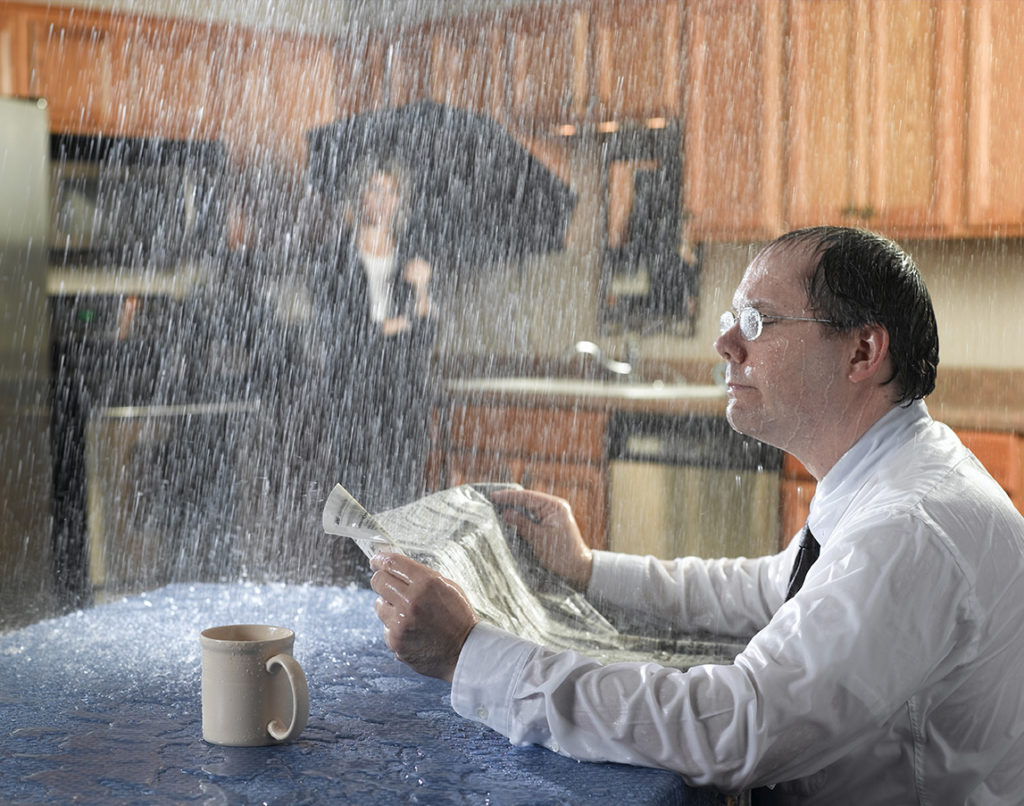
When summer comes and temperatures rise, air conditioning is a necessity for comfort and survival, especially here in Florida. These days, most homes have a central HVAC system. A centralized air conditioning system has two units: an evaporator coil located in your furnace, and a compressor unit located outside your home. It's natural to worry that the compressor might be damaged by all the rain that would fall into it. However, because it is outside, it is specifically designed to resist weather conditions, with the exception of special circumstances like flooding or hurricanes.
Being outside all the time, the compressor unit of an air conditioner may seem like it can easily be damaged. However, like the rest of your house's exterior, a compressor is specifically designed to resist damage from the weather. In fact, placing a tarp over it to prevent rain from entering may in fact damage your compressor, because the tarp will trap moisture in the compressor unit, increasing the humidity and causing rusting. A tarp would also decrease the performance of a compressor by blocking the airflow. The compressor is designed to use the air flowing through it to dry quickly, preventing rust and other damage.
Being designed to withstand rain, it's perfectly safe to run your air conditioner while it's raining. In fact, an air conditioner will dehumidify the air in your home, which easily increases to uncomfortable levels when it is raining during the hot summer. Dehumidifying your home will help make the air more comfortable. In addition, excess humidity can encourage mold growth. Thus, running your air conditioner during a summer shower is not only comfortable, but is in fact beneficial.
Humidity is an easily overlooked part of climate control in the home. For improved humidity control, ask your Mahle HVAC contractor about options for adding a dedicated humidity unit to your central HVAC system. With increased humidity control, you can more controllably regulate your home's humidity. A lower humidity not only discourages mold growth, but also means that higher temperatures in your house will still feel comfortable. Good humidity control is especially important when it is raining because the humidity can quickly rise to uncomfortable levels which make you feel more hot, which in turn can cause you to try turning up the air conditioning to compensate. Being able to set the thermostat a few degrees higher by decreasing humidity will decrease your electricity usage, meaning that investing in a dehumidifier will not only save you money, but is good for the environment.
Of course, even though your air conditioner's compressor unit will resist rain, flooding and hurricanes are exceptional circumstances that can still damage it, as it is not designed to withstand submersion in water. This is similar to how your house also resists rain but will be damaged by these natural disasters. In the event of a hurricane, turn off your HVAC at the circuit breaker to prevent electrical shock in case there is flooding. In addition, cover the outdoor compressor unit to prevent damage from debris. This is the only time that you should cover the compressor, since the potential for debris damage outweighs possible damage from humidity. Also strap down the unit to the ground if possible to prevent high winds from tearing it out.
Air conditioning is a necessity in Florida--in fact, the southern part of the state was virtually unpopulated before air conditioning, because it was so hot and humid in the summer that it was essentially uninhabitable. Thus, maintaining your air conditioning unit is an essential part of home upkeep as a responsible homeowner. Knowing when and how to protect and maintain the various parts of your HVAC system is a part of that, to keep your air conditioning maintained and functioning well.
Because your air conditioner's compressor is specifically designed to deal with environmental aspects associated with being outside, it will not be harmed by rain, and in fact covering it with a tarp will damage it. A well functioning air conditioner that effectively cools your house improves not only comfort, but also happiness and productivity. A well cooled home is a happy home.
How To Choose The Best Air Conditioner
Your home’s HVAC system is one of the most important appliances for home comfort. It makes sense to choose the best possible system you can find. Here are things to consider when choosing a new air conditioner.
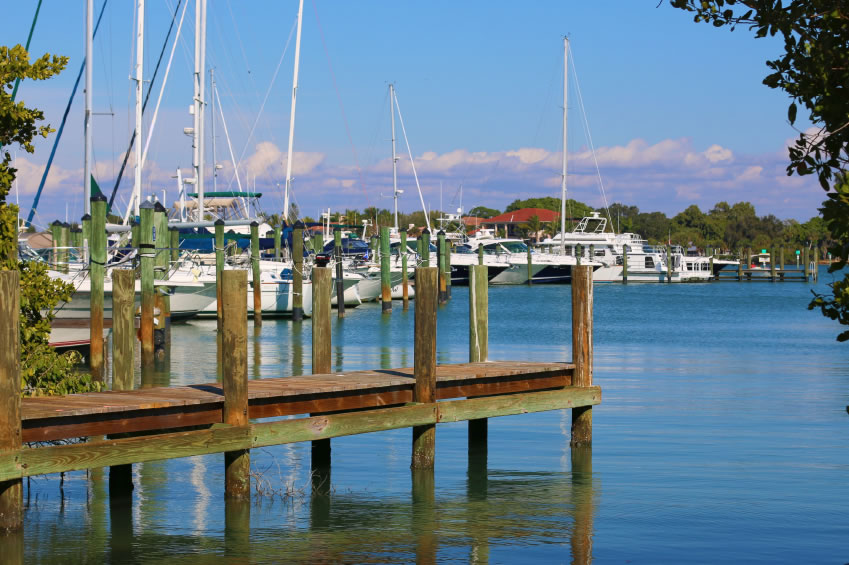
Energy Efficiency
Air conditioners manufactured today are more energy efficient than those of the past. This translates to less environmental impact and lower utility bills. However, not all air conditioners are created equal, and there are specific things you should look for to get the most out of your investment.
When you shop for central air conditioning, be sure to look at the SEER rating. This stands for seasonal energy efficiency ratio and it makes a big difference. Look for ratings numbered 13 or higher. The higher the SEER, the more efficient the air conditioner is.
If you purchase an A/C with an ENERGY STAR label, you can be assured the SEER is at least 13. ENERGY STAR labels are only given to appliances that meet strict guidelines set by the EPA. They go through a battery of tests to achieve this designation.
Type Of Air Conditioner
There are several types of air conditioners, including ducted central air, ductless central air, and window units. If you are upgrading from a ducted central air unit, you will probably want to remain with that type of system. If your home is new or you have no existing ductwork, then a ductless system may be best. These are also called ductless mini splits, and some are equipped to cool in summer and heat the home in winter. The indoor and outdoor units are connected via a thin tube, and these ductless systems are energy efficient and quiet.
Window units or portable air conditioners are sometimes suitable if you only have a small space, such as a garage, to cool.
Indoor Comfort
Look for comfort aspects aside from cooling, such as how well the unit dehumidifies and how quiet it operates.
Size
Size is very important, but this does not mean you should buy the biggest unit you can find. No matter what kind of air conditioner you buy, if you choose one that is too small, you won’t get adequate cooling and the unit will have to work very hard. This usually equates to extra noise, inefficiency and a reduced lifespan of the unit. However, if you purchase a unit that is too big, it will cycle on and off too much. Your home may be cool, but it will also be damp and you will be using more energy than needed.
Here is why choosing an oversized air conditioner can be a problem. Aside from cooling, air conditioners remove some moisture from the air, which keeps humidity levels lower and makes your home feel cooler and generally more comfortable. Since air is moved through a filter, it also helps with indoor air quality, provided the filter is changed regularly. An oversized air conditioner doesn’t need to stay on very long at a time to bring temperatures down in the home. This makes it shut off too quickly to dehumidify the air and affects air quality.
The best way to determine what size is right for your home is to have an HVAC technician come out to do a cooling load calculation on your home. Using industry-approved calculations, the technician can determine the size of system you need plus give you tips about home improvements you could make to improve energy efficiency once the unit is installed.
Other Features
Other features to look for including a fan-only switch and a variable speed air handler. A fan-only switch allows you to use only the fan when temperatures are so cool outside that you don’t need the cooling component. This saves energy while keeping air flowing through your home.
A variable speed air handler is a common feature now. Instead of pushing cool air into the home in a sudden rush before eventually shutting off again, what this does is simply change the fan speed so there is a continuous flow. These air handlers keep things quieter and make the home more comfortable, evenly cool.
Choosing a new air conditioner shouldn’t be a rushed affair. When you pick the right system, it should last for many years and save you money through energy savings. Remember to ask your HVAC professionals anytime you have any questions about which A/C is right for your home. Call or Text us today for more details (941) 203-7955 and don't forget to check out our specials, financing, and rent-to-own air conditioning options. Stay Cool with Mahle!
Keep Good Health Indoors By Maintaining Your Air Conditioner
The air in your home can be hazardous to your health. That's because many people do not take the time to properly maintain their air conditioning system. Your air conditioning system is designed to clean and circulate the air in your home.

However, the system must be cleaned and serviced regularly or the air in your home could become toxic. This can be particularly serious for people with health problems. It can also sicken healthy people as well.
The Problem
The air in your home contains dust mites, dead skin cells, and other irritants. When your air conditioning system is functioning properly, it filters those things out of the air and pumps clean air back into your home. However, in order for the system to work as it should, the air filters, the ductwork, and other parts of the HVAC system must be kept clean. Many people go for years without ever having the air filters or other parts of the HVAC system cleaned, repaired, or replaced. The result is dirty air is continually recirculated in their homes.
Exacerbating the Problem
The problem of dirty air being recirculated in the home is made even worse when people use wood-burning fireplaces. Wood-burning fireplaces look great and can give your home and hearth a comforting glow and add a bit of warmth in frigid winter months and at other times during the year. The problem is wood-burning fireplaces release soot, carbon, and particulate matter into the air. If these things are not filtered out in a timely manner, they can make their way into your lungs and make it difficult for you to breathe. This can lead to all kinds of health problems.
Smoking Part of the Problem
If there are smokers in your home or if guests are allowed to smoke when they visit, this adds to the problem. Inhaling secondhand smoke can lead to a whole host of health problems. If your air conditioning system is not functioning properly and there are smokers in your home, that means everyone in your home is inhaling secondhand smoke constantly. While this is particularly bad for the young, the old, and anyone with a compromised cardiovascular system, it can also lead to health problems for seemingly healthy, robust people.
Other Irritants
Dust mites, strong smelling chemicals, pet dander, and even hair spray, glues, paints, and perfumes can also irritate the lungs and lead to health problems if they are allowed to linger in the air. The bottom line is if the homeowner wants to protect their health and the health of others that live in or visit the home, they must pay attention to the maintenance of their air conditioning system. Failure to do so will not only make them uncomfortable, it can be painful and dangerous health wise.
The Solution
The solution to the problem of indoor pollutants is simple. The air conditioning system must be serviced regularly. Some of it can even be done by the homeowner themselves. However, ideally, it's better if they call in a professional at least once or twice a year to check, clean, repair, or replace the filters, ductwork, coils, and fins in the air conditioning system. This not only improves the quality of the air it the home, but it will also improve the performance of the air conditioning system and make it work more effectively, last longer, and save on energy bills.
Air Conditioner Filters
Routinely cleaning or replacing the air filter in the air conditioning system is one of the most important maintenance tasks. This will help to make sure the heavy particulate matter and many of the everyday pollutants found in indoor air is routinely filtered out. This can make a dramatic improvement in the quality of the air in the home and eliminate many health challenges. When dirty air filters are left in place, dirt and other pollutants can get into the evaporator coil and lower the air conditioning systems efficiency and effectiveness by as much as 20%.
An HVAC professional will know where in the ceiling, furnace, wall, ductwork or air conditioning unit the filters are located. They can also let you know if they can be cleaned and reused or must be replaced. Cleaning or replacing the air filter every 30 to 60 days during the cooling season will dramatically improve the indoor air quality and save on energy bills.
Air Conditioner Coils
The evaporator and condenser coils also need to be cleaned regularly. This helps the system to better absorb heat, improve airflow, and conserve energy. It also helps if you keep a 3-foot area around your outdoor condenser free from foliage, debris, and dirt. This will minimize the chances of dirt and debris collecting on its fins. Making sure the aluminum fins on the evaporator and condenser coils are in good condition and the condensate drains are clear will keep excess moisture out of your home and reduce or eliminate the health problems mold and mildew can cause.
Hire a Professional
A well-trained professional HVAC service technician can find and fix the common HVAC system problems. They will make sure it has the right amount of refrigerant, test for refrigerant leaks, capture any refrigerant to be evacuated from the system, check and seal duct leakage, and service the entire system. All of this will make the system work better and protect the health of everyone in the home.
If you have or are concerned about the air quality of your home contact the air conditioning experts at Mahle Cool Air. Our technicians are NATE certified and we are a Bryant factory authorized dealer. Mahle Cool Air can install new air conditioners, and other advanced home air quality equipment at a fair cost and backed by Bryant's 100% satisfaction guarantee. Call or Text us today for more details (941) 203-7955 and don't forget to check out our specials, financing, and rent-to-own air conditioning options. Stay Cool with Mahle!
